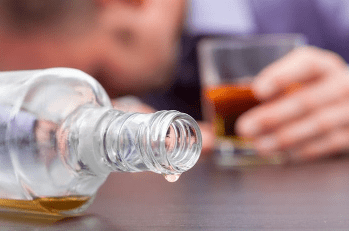Alcohol poisoning is when there’s too much alcohol in your blood, and it causes parts of your brain to shut down. It’s also called alcohol overdose. Alcohol is a depressant. That means it can affect your brain and nervous system, slowing your breathing, your heart rate, and other important tasks that your body does.
Your liver usually does a good job of keeping alcohol’s toxins from getting into your bloodstream. But if you drink a lot in a short time, your liver may not be able to keep up.
Symptoms
Alcohol poisoning signs and symptoms include:
- Confusion
- Vomiting
- Seizures
- Slow breathing (less than eight breaths a minute)
- Irregular breathing (a gap of more than 10 seconds between breaths)
- Blue-tinged skin or pale skin
- Low body temperature (hypothermia)
- Passing out (unconsciousness) and can’t be awakened
Causes
Alcoholic drinks contain a form of alcohol known as ethyl alcohol or ethanol. That’s what causes alcohol poisoning. Other kinds that you might have around the house, like isopropyl alcohol (rubbing alcohol) and methanol (wood alcohol), are toxic in a different way.
Binge drinking is a major cause of alcohol poisoning. For a man, binge drinking is when you have five or more drinks in less than 2 hours. For a woman, it’s four drinks in that same amount of time. “Extreme” binge drinking is double those amounts.
One drink is:
- 12 ounces of beer (5% alcohol)
- 5 ounces of wine (12% alcohol)
- 1.5 ounces of 80-proof liquor

When to see doctor
It’s not necessary to have all the above signs or symptoms before you seek medical help. A person with alcohol poisoning who is unconscious or can’t be awakened is at risk of dying.
Risk Factor
A number of factors can increase your risk of alcohol poisoning, including:
- Your size and weight
- Your overall health
- Whether you’ve eaten recently
- Whether you’re combining alcohol with other drugs
- The percentage of alcohol in your drinks
- The rate and amount of alcohol consumption
- Your tolerance level
Complications
- Choking: Alcohol may cause vomiting. Because it depresses your gag reflex, this increases the risk of choking on vomit if you’ve passed out.
- Stopping breathing: Accidentally inhaling vomit into your lungs can lead to a dangerous or fatal interruption of breathing (asphyxiation).
- Severe dehydration: Vomiting can result in severe dehydration, leading to dangerously low blood pressure and fast heart rate.
- Seizures: Your blood sugar level may drop low enough to cause seizures.
- Hypothermia: Your body temperature may drop so low that it leads to cardiac arrest.
- Irregular heartbeat: Alcohol poisoning can cause the heart to beat irregularly or even stop.
- Brain damage: Heavy drinking may cause irreversible brain damage.
- Death: Any of the issues above can lead to death.
Treatment
Alcohol poisoning treatment usually involves supportive care while your body rids itself of the alcohol. This typically includes:
- Careful monitoring
- Prevention of breathing or choking problems
- Oxygen therapy
- Fluids given through a vein (intravenously) to prevent dehydration
- Use of vitamins and glucose to help prevent serious complications of alcohol poisoning
Adults and children who have accidentally consumed methanol or isopropyl alcohol may need hemodialysis — a mechanical way of filtering waste and toxins from your system — to speed the removal of alcohol from their bloodstream.
Prevention
To avoid alcohol poisoning:
- Drink alcohol in moderation, if at all: If you choose to drink alcohol, do so in moderation. For healthy adults, that means up to one drink a day for women of all ages and men older than age 65, and up to two drinks a day for men age 65 and younger. When you do drink, enjoy your drink slowly.
- Don’t drink on an empty stomach: Having some food in your stomach may slow alcohol absorption somewhat, although it won’t prevent alcohol poisoning if, for example, you’re binge drinking.
- Communicate with your teens: Talk to your teenagers about the dangers of alcohol, including binge drinking. Evidence suggests that children who are warned about alcohol by their parents and who report close relationships with their parents are less likely to start drinking.
- Store products safely: If you have small children, store alcohol-containing products, including cosmetics, mouthwashes and medications, out of their reach. Use child-proof bathroom and kitchen cabinets to prevent access to household cleaners. Keep toxic items in your garage or storage area safely out of reach. Consider keeping alcoholic beverages under lock and key.
- Get follow-up care: If you or your teen has been treated for alcohol poisoning, be sure to ask about follow-up care. Meeting with a health professional, particularly an experienced chemical dependency professional, can help you prevent future binge drinking.

